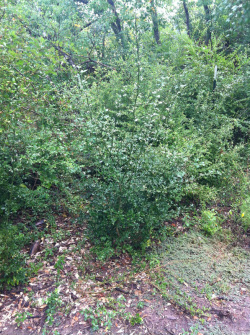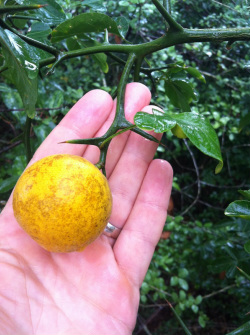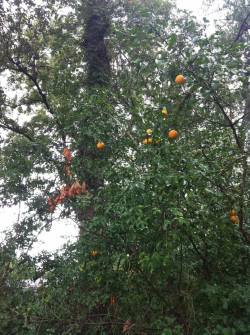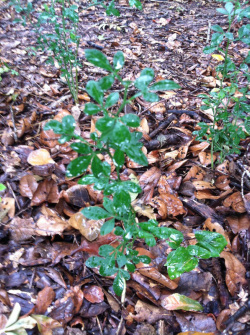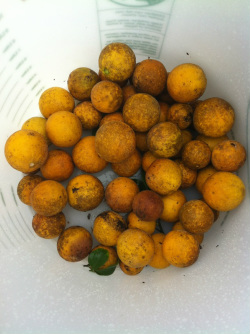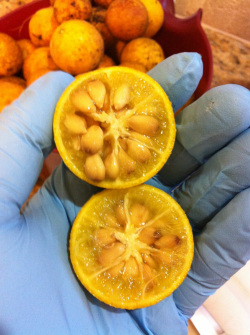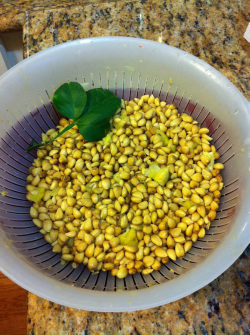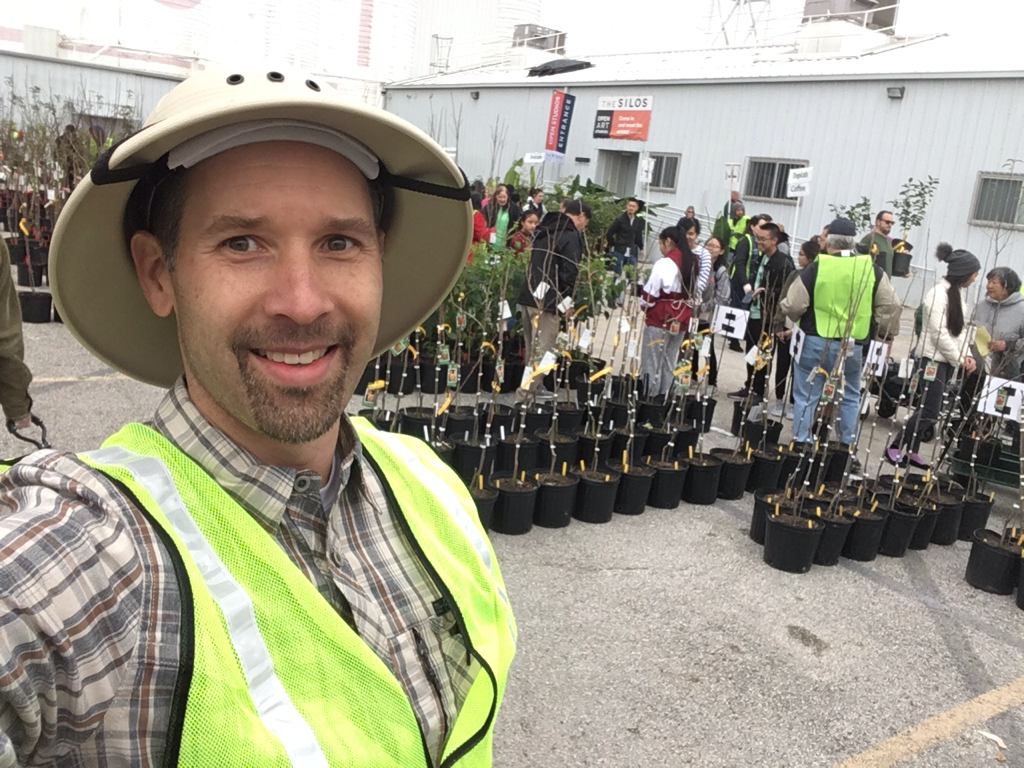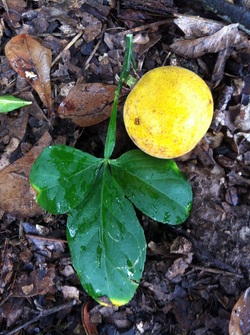
Trifoliata is not a true citrus (genus Poncirus), but is so closely related that it is graft-compatible with almost all citrus. When used as a rootstock, it lends some of it's cold hardiness and fortitude to whatever is grafted onto it. I don't know how it first came to Texas from it's native home in northern China and Korea, but since then it has escaped into the wild and naturalized, often creating impenetrable thickets along river bottoms, creeks, and swampy areas. The plant itself is gnarly and twisted, has vicious thorns, bears awful tasting fruit, and has leaves that grow in groups of three (thus the name trifoliate, or "three-leaved"). The fruit looks like a small orange from the outside, but the inside is a completely different story. For starters the fruit is filled with seeds, sometimes as many as 60, and a foul-smelling, pungent, sticky juice that is really difficult to wash off. I have found that easiest way to get it off is with vegetable oil, followed by dish soap. The nauseating smell is unmistakable, and can easily be detected in the fruit of trifoliate hybrids. I've read that it can be used to make a marmalade, but I sure wouldn't want to try it. I dared to taste it once, and believe me, once was enough.
Even though the fruit is bad, the plant's toughness is what we're after, so it is still worth growing trifoliate to use as a citrus rootstock. So in spite of the rain I took a little field trip to track down the trifoliate I was emailed about, and after walking around a little while I found them. The trees that were 15 feet tall, thorny as all hell, and loaded with fruit. There were also many seedlings coming up that were already a good size for grafting. The seedlings seemed to grow in very tight clusters, as if a single fallen fruit had rotted, and then all the seeds inside germinated and competed until the strongest prevailed. I picked up around one gallon of fallen fruit and brought them back to the house, and removed all the seeds, which I plan on planting for next year's supply of rootstocks. If you would like to go out and collect some seeds for yourself, or would like me to send you some seeds, send me an email. I'll be happy to send you seeds if you send me a self-addressed, stamped envelope, or let you know where you can find the wild trees.
